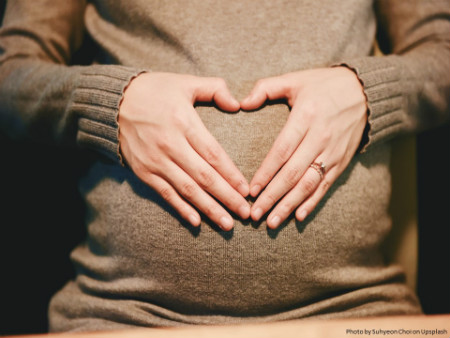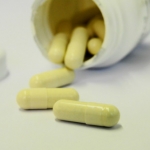The omega-3 fatty acids, including eicosapentaenoic acid (EPA) and docosahexanoic acid (DHA), have a broad range of health benefits and may be beneficial for the treatment of mood disorders. Because during pregnancy omega-3 fatty acids are diverted to the developing fetus, some women may develop a deficiency of omega-3 fatty acids during pregnancy. Previous studies have shown that pregnant women with lower levels of DHA may be more vulnerable to depressive symptoms. Several small studies have attempted to use omega-3 fatty acids to treat perinatal depression but have yielded inconsistent findings.
A recent trial tested the efficacy of EPA- and DHA-rich fish oils in the prevention of depressive symptoms in a group of pregnant women at increased risk of depression. The researchers identified 126 pregnant women who were at risk for depression (having an Edinburgh Postnatal Depression Scale score 9-19 or a history of depression) in early pregnancy. They were randomly assigned to receive EPA-rich fish oil (1060 mg EPA plus 274 mg DHA), DHA-rich fish oil (900 mg DHA plus 180 mg EPA), or soy oil placebo. The Beck Depression Inventory (BDI) was used to assess for depressive symptoms at enrollment, 26-28 weeks, 34-36 weeks, and at 6-8 weeks’ postpartum.
EPA-rich fish oil and DHA-rich fish oil supplements did not appear to prevent depressive symptoms during pregnancy or the postpartum period. Among the 118 women who completed the study, there were no differences between groups in BDI scores at any of the 3 time points after supplementation. Serum DHA- concentrations at 34-36 weeks were inversely related to BDI scores in late pregnancy; however, they did not correlate with postpartum scores.
So there remains inconsistency regarding the use of omega-3 fatty acids for the prevention of perinatal depression. These findings are consistent with those of Makrides et al (2010) who found no benefit with DHA-rich fish oil for the prevention of depressive symptoms (in a group of pregnant women who were not selected based on risk for depression) and those of Freeman et al (2008) who found no additional benefit for EPA-predominant fish oil added to interpersonal psychotherapy.
But there have been other studies which have demonstrated the effectiveness of omega-3 fatty acids in the treatment of perinatal depression (Su et al, 2008; Freeman et al, 2006). The authors speculate that one possible reason that their study differed is that they tested lower doses of EPA and DHA than were used in those studies.
Based on these and other findings, it remains to be determined whether a subset of women may be particularly responsive to treatment with omega-3 fatty acids. Differences between responders and non-responders could potentially be due to dietary intake or genetic differences in omega-3 fatty acid metabolism. Also, it is unclear if there is a differential effect of omega-3 fatty acids found in food compared to supplements. It is premature to recommend omega-3 fatty acids as monotherapy for either the acute or preventative treatment of depression. However, due to the possibility of antidepressant effects and other health benefits for pregnancy, many women may opt to take omega-3 fatty acids during pregnancy.
Ruta Nonacs, MD PhD
Marlene Freeman, MD
Freeman MP, Davis M, et al. Omega-3 fatty acids and supportive psychotherapy for perinatal depression: a randomized placebo-controlled study. J Affect Disord. 2008 Sept; 110(1-2):142-8.
Freeman MP, Hibbeln JR, et al. Omega-3 fatty acids: evidence basis for treatment and future research in psychiatry. J Clin Psychiatry. 2006 Dec;67(12):1954-67.
Makrides M, Gibson RA, et al. Effect of DHA supplementation during pregnancy on maternal depression and neurodevelopment of young children: a randomized controlled trial. JAMA. 2010 Oct 20;304(15):1675-83.
Mozurkewich EL, Clinton CM, Chilimigras JL, et al.The Mothers, Omega-3, and Mental Health Study: a double-blind, randomized controlled trial. Am J Obstet Gynecol. 2013; 208(4):313.e1-9.
Rees AM, Austin MP, et al. Omega-3 deficiency associated with perinatal depression: case control study. Psychiatry Res. 2009 April 30; 166(2-3)254-9.
Su KP, Huang SY, et al. Omega-3 fatty acids for major depressive disorder during pregnancy: results from a randomized, double-blind, placebo-controlled trail. J Clin Psychiatry. 2008 Apr;69(4)644-51.








Leave A Comment